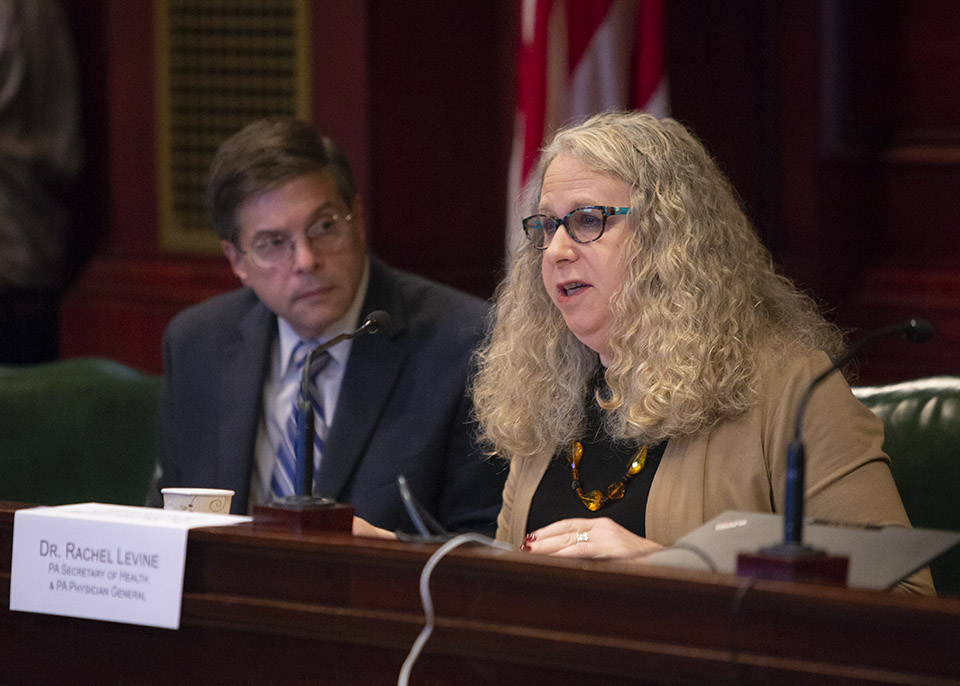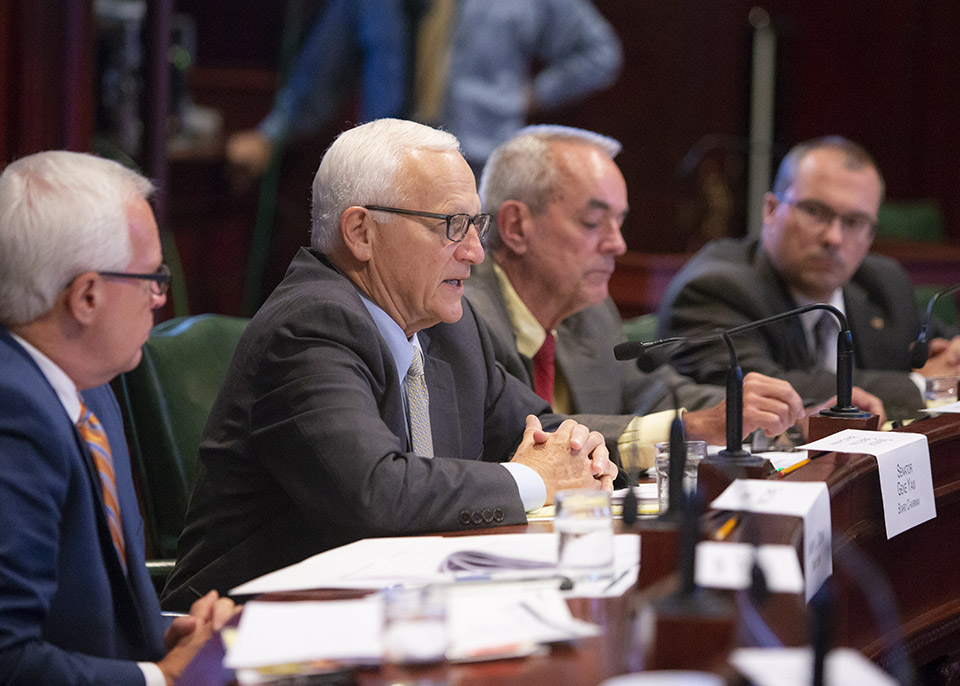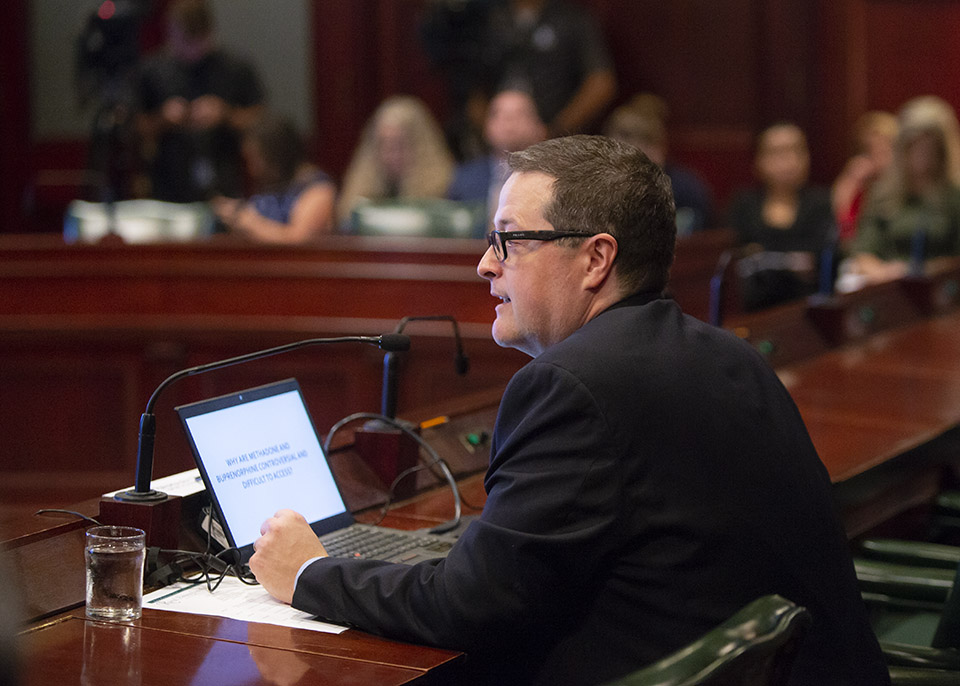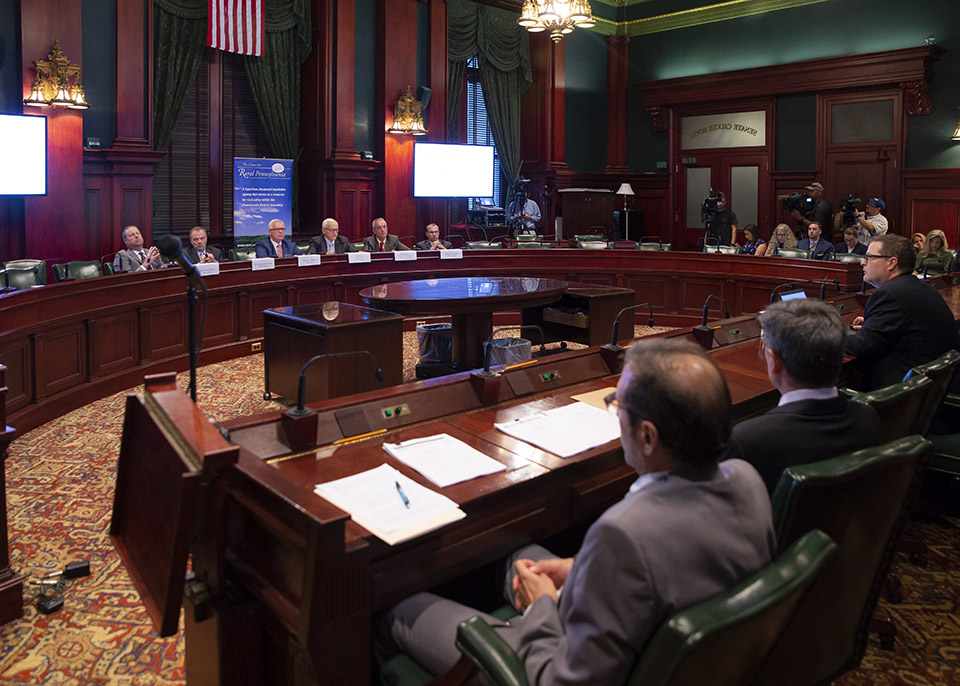HARRISBURG – Members of the Center for Rural Pennsylvania Board of Directors and other legislators today convened at the State Capitol as part of a four year examination of the statewide opioid crisis, with a focus on treating addiction as a disease, such as heart disease or diabetes.
Beginning in 2014, the Center for Rural Pennsylvania (CRP), a bipartisan, bicameral legislative research agency of the General Assembly, held the first of 15 public hearings to discuss the state’s growing opioid epidemic. Tuesday’s hearing sought to highlight opioid addiction as a treatable, chronic condition, not a moral flaw.
“The politically correct thing to say is that addiction is a disease, it is not a moral failing,” Senator Gene Yaw, Chairman of the CRP Board said during his opening remarks. “But we don’t treat it like a disease, we just pay a lot of lip service to the problem,” he explained. Yaw graphically pointed out the issue with an example: “If I told you I am buying a house next to you and I am a diabetic and must take insulin every day, you would look at me one way. But, if I tell you I am buying a house next to you and I have a substance use disorder and must take buprenorphine every day, I can guarantee I would be treated differently.” He added, that “we must remove the stigma around the disease of addiction, and highlight the medication assisted treatment options that are available, such as methadone, buprenorphine and vivitrol.”
Addiction treatment has a long, flawed history across the nation. In the past, society viewed drug addiction as a moral failing. Methods of addressing addiction included imprisonment or commitment to asylums. Today, medical professionals across the world are recognizing addiction as a chronic disease of the brain with the potential for both recovery and relapse.
According to the National Institute on Drug Abuse (NIDA), fundamental advances in the neurobiology of addiction have been made over the past two decades. Molecular and imaging studies have revealed addiction as a brain disorder with a “strong genetic component,” and this has spurred research on new pharmacological treatments.
Dr. Bradley Miller, a Fellow of the American Academy of Family Physicians at UPMC Susquehanna in Williamsport reiterated NIDA’s position. “This is a physiologic, chronic disease of the brain, not something that you can wish away,” Miller said. During his presentation, he discussed the changes to the brain, including dopamine surges as a result of opioid dependence. “The front of the brain that makes us reason can be completely overpowered,” he explained. “There are permanent changes to brains on addictive substances and it’s profound in opioid addiction.”
Pennsylvania’s Secretary of Health and Physician General Dr. Rachel Levine highlighted the state’s new medical marijuana program during the hearing as an alternative to chronic pain management and as one more tool in the state’s arsenal for treating opioid dependency. “Studies show that states with medical marijuana programs are seeing a reduction in the use of opioids and patients are reporting relief from their symptoms, most notably in the area of pain management,” she said.
The CRP panel also heard from Dr. Frederic Baurer, President and Dr. William Santoro, Public Policy Chair for the Pennsylvania Society of Addiction Medicine. “Most patients need medication assistance. Fortunately, we have three potent pharmacological approaches to aid in the treatment of opioid addiction: methadone, suboxone and extended release naltrexone (vivitrol). None of these “cure” addiction and none is appropriate for all patients, but as with any medical treatment, the availability of treatment approaches that can be tailored to the individual gives patients suffering from opioid addiction a real chance to overcome this deadly disease.”
“The presentations we heard today from Doctors Miller, Santoro and Baurer on how to medically treat those who have become addicted to some form of opioid were excellent,” Rep. Garth Everett, Vice Chairman of the CRP Board said. “One of the important takeaways is that addiction is a brain disease that can be treated and overcome by a combination of medication-assisted and psychosocial treatment like AA/NA or other twelve-step based programs.”
“We have made great strides in treatment protocols like the Doctors have described for us today and have seen success rates go up. Now we need to get more Doctors trained in these practices so our success rates can continue to go up across the state rather than just in selected treatment centers.”
An agenda, testimony and video from today’s hearing, along with additional information can be found on Senator Yaw’s website at www.SenatorGeneYaw.com and on the CRP’s website at http://www.rural.palegislature.us/.






